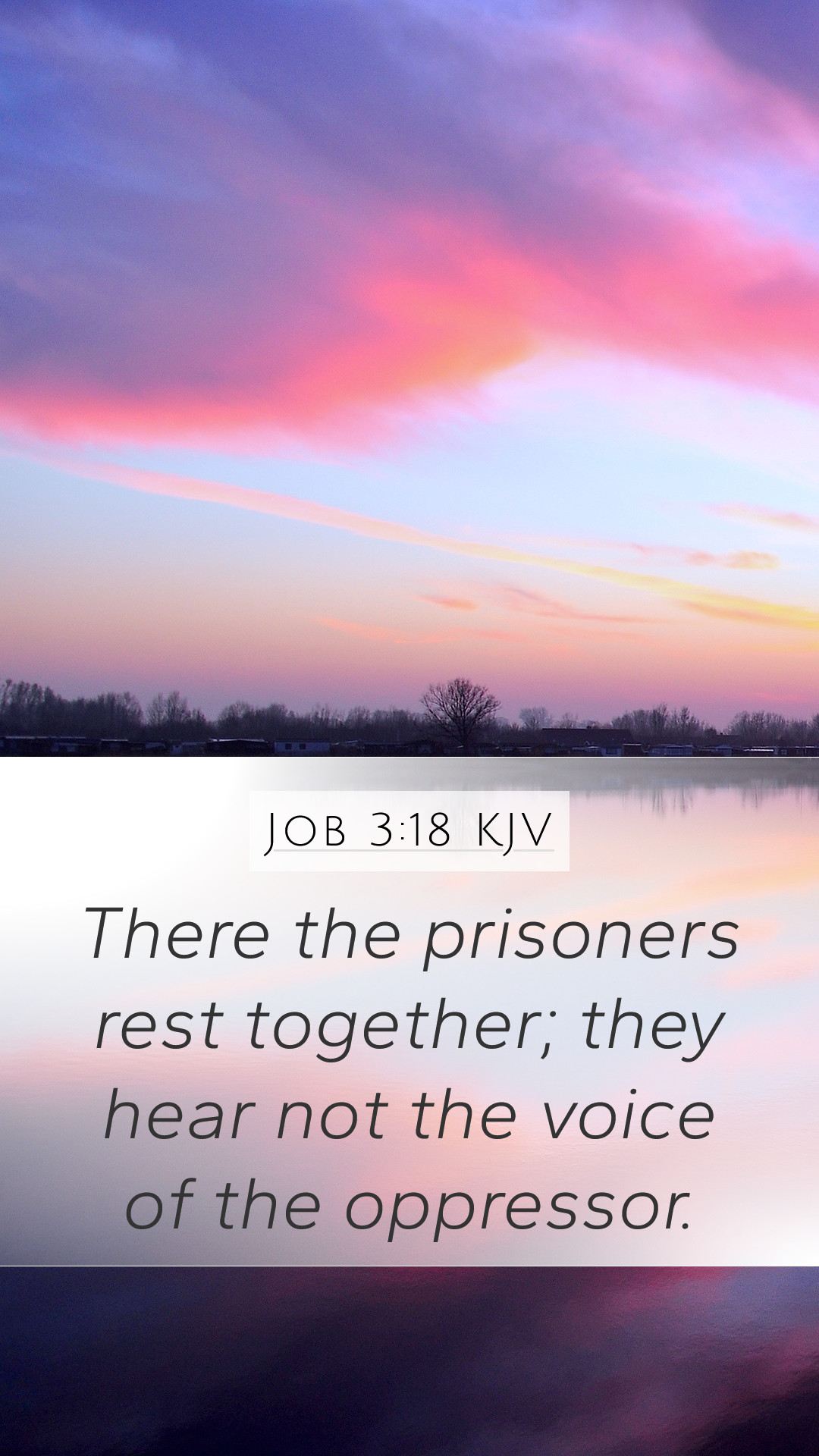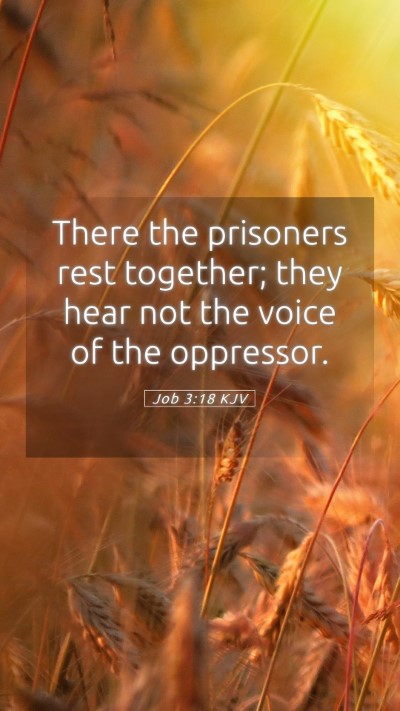Old Testament
Genesis Exodus Leviticus Numbers Deuteronomy Joshua Judges Ruth 1 Samuel 2 Samuel 1 Kings 2 Kings 1 Chronicles 2 Chronicles Ezra Nehemiah Esther Job Psalms Proverbs Ecclesiastes Song of Solomon Isaiah Jeremiah Lamentations Ezekiel Daniel Hosea Joel Amos Obadiah Jonah Micah Nahum Habakkuk Zephaniah Haggai Zechariah MalachiJob 3:18 Meaning
What is the meaning of Job 3:18?
There the prisoners rest together; they hear not the voice of the oppressor.
Job 3:18 Bible Verse Meaning
Understanding Job 3:18
Job 3:18 states: "There the prisoners rest together; they hear not the voice of the oppressor." This verse emerges from a profound lament, highlighting the themes of suffering, death, and the solace found in the grave. To grasp the full essence of this verse, it is essential to delve into its biblical context and consider insights from several public domain commentaries.
Insight from Matthew Henry
Matthew Henry elucidates that in this verse, Job reflects on the state of the dead. He suggests that death is a great equalizer, where all sufferings cease. Henry notes that regardless of the experiences of life, death brings a cessation of troubles and a reprieve from the oppressors. It is also a comfort for those who endured hardship, as they find peace and rest from their afflictions.
Albert Barnes' Commentary
Albert Barnes emphasizes the symbolic meaning behind the "prisoners." He interprets this as indicating that the grave serves as a place of rest where all the burdens of life are shed. Barnes draws attention to the cessation of oppression, highlighting that in death, individuals are no longer subject to the trials that they faced during their earthly existence. The voice of the oppressor signifies life's hardships, which no longer hold power over those who have passed.
Adam Clarke's Perspective
Adam Clarke approaches the verse with a consideration of its implications for the human condition. He concurs with both Henry and Barnes regarding the peace found in death. Clarke argues that the dead are free from the tyranny of their earthly struggles. He expands the reflection by mentioning that the absence of suffering and oppression in death offers a profound sense of hope even amidst life's darkest trials. Clarke also suggests that this rest can be seen as a promise for those who suffer while alive.
Key Themes in Job 3:18
- Equality in Death: Job reinforces the idea that death levels the playing field for all, regardless of their status in life.
- Relief from Suffering: The verse brings into focus the understanding that the dead no longer experience the pain and sorrow that life can bring, which offers comfort to those still suffering.
- Oppression and Freedom: The notion of being free from the "voice of the oppressor" speaks about liberation from life's adversities.
Application of Job 3:18
For many who engage in Bible study groups or seek online Bible study resources, Job 3:18 serves as a foundation upon which to build their understanding of life's trials and the hope of eternal rest. This verse invites readers to reflect on how they interpret suffering and how it can lead to a deeper appreciation of the peace promised after death.
Cross References
- Ecclesiastes 9:5: "For the living know that they will die, but the dead know nothing."
- Psalms 88:10-12: "Will you perform wonders for the dead? Will the departed rise to praise you?"
- Revelation 14:13: "Blessed are the dead who die in the Lord from now on."
Conclusion
The profound nature of Job 3:18 challenges readers to reconsider the concepts of struggle, despair, and the ultimate promise of peace in death. The insights drawn from Matthew Henry, Albert Barnes, and Adam Clarke provide a deeper understanding of how this verse applies to both individual lives and broader theological discussions. This prompts a reflection on how to interpret Bible verses and apply Bible verses to daily life, enriching one's journey in faith and understanding.


